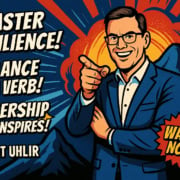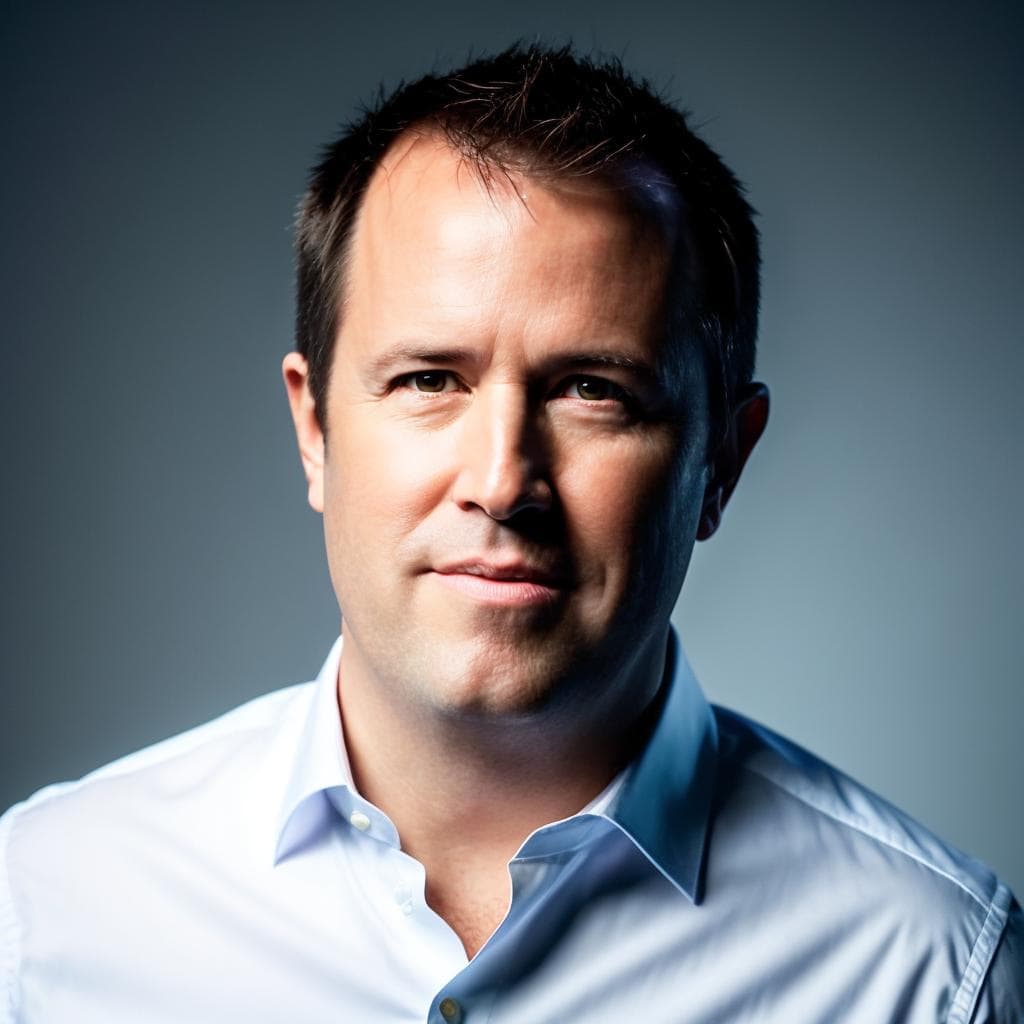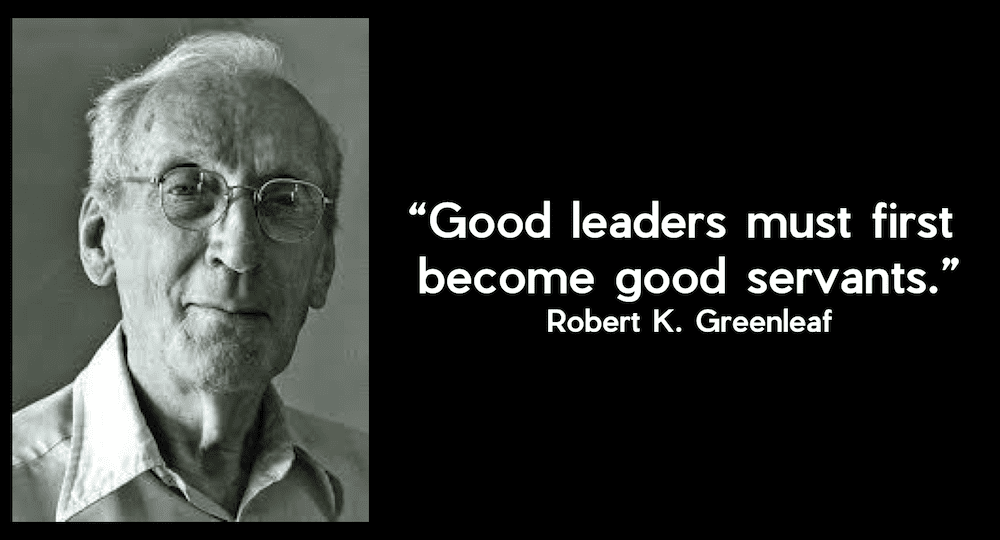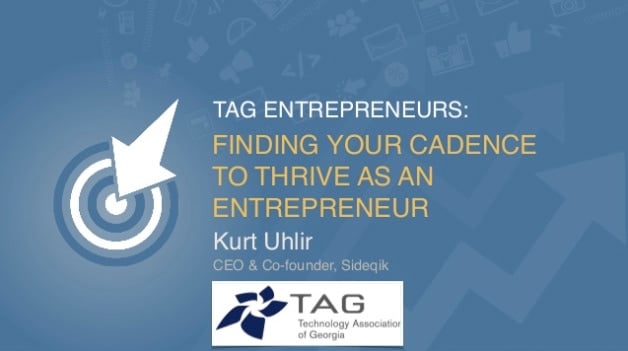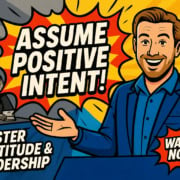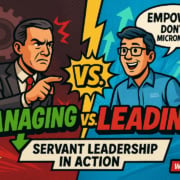Kurt Uhlir on Redefining Success and Team Building with Josh Byrd
Success at All Costs Broke Me—Here’s the System That Restores What Actually Matters
My obsession with building, scaling, and achieving once nearly cost me everything. Years ago, I would have measured my life by patents filed, companies exited, and compensation packages. No one tells you in those moments that trophies on a shelf won’t keep you connected to your family, your faith, or—if you’re honest—yourself.
These days, what gets me out of bed isn’t another zero on a spreadsheet. It’s the chance to multiply what I’ve learned about results, leadership, and regret into systems that let both business and people thrive.
The question isn’t how fast you can win, but what’s left after you do.
That’s the tension I dove into with Josh Byrd on his podcast Growth Well—a conversation that didn’t flinch from admitting how easy it is to lose the plot when chasing hypergrowth, and what it really takes to recalibrate for a life that scales meaning, not just income.
Growth Well: More Than Just Another Playbook Podcast
The conversation surfaced because Josh gets it. His background isn’t light on real business leadership: host of Growth Well, fractional CMO, coach, multi-hyphenate creative, and someone who has rebuilt his own “why” from the scraps of a burnout phase. He’s the kind of operator who knows the success-at-all-costs story from both sides.
More than 12,000 people have already watched our interview on YouTube, with many more tuning in via Spotify and Apple Podcasts.
If this conversation sparks something for you—questions, pushback, or agreement—I’d love to hear your thoughts in the comments below. I read every one.

Ruthless Truth: Why Chasing Professional Wins Leaves You Empty
I spent the early chapters of my career believing invention was why I was alive. I was the “king of scaling”—nineteen patents across seven industries, tech licensed to and adopted by Apple and Microsoft, deal after deal. The scoreboard kept ticking up, and so did my pride that chasing more, faster, better, was the whole assignment.
But I’ll be blunt: that ROI-first “why” didn’t just leave my own life scorched. It left shrapnel for others, too.
As I told Josh, “I made dozens of people millionaires and half of them won’t even return my phone calls today, despite me apologizing and sending little care packages of how I used to be.” The ugliness of worshipping work is that you eventually break the relationships required for a meaningful life.
Josh resonated, reflecting on his own version of the “success at all costs” trap. “I too have been through that phase,” he shared, “and I’m thankful I am not there anymore because my mission too is to help other people as much as I possibly can.”
What changed for me? Hitting bottom. I had no spiritual life, my marriage was wrecked, and my daily pursuit left me emptier every quarter. It wasn’t a single moment, but a slow, grinding realization: work for the sake of work is a hollow god.
Faith became the corrective, but not through platitudes—through the hard work of reframing what “why” actually means. It was no longer about what fulfilled me in isolation, but about how I served and multiplied value for people—my teams, my wife Valerie, my kids. At every inflection point, the real question now is: how do I keep people—not deliverables—at the center, even as we execute at the highest level?
Mental Habits That Actually Move the Needle
Shifting your “why” is a start, but it’s not a system. Let me get tactical—what keeps me from slipping into my old hustle patterns?
Josh pressed me on this: “What rituals and habits and routines do you have that keep you professionally growing but also personally healthy?” Here’s where we landed:
- Relentless Learning—But Curated Valerie (my wife) and I read voraciously—at least 50 books a year for me, 160 for her last annual round. Add to that: hundreds of patents, white papers, and deep technical breakdowns—not just for the sake of knowledge, but to sharpen the questions I bring into new domains. You don’t even know what to ask AI, or what to challenge a market on, until you poke beyond the obvious.It’s not about motion—cramming in more content. It’s about focus. Depth beats breadth if you want to see around corners.
- A Practice of Quiet: The Daily Office Most Western leadership advice will tell you to hustle at 2x or 3x speed—never mind the audible noise. For me, restoring a quiet spiritual discipline became non-negotiable. I follow a version of the “Daily Office” from Emotionally Healthy Spirituality: twice a day, even just 2–10 minutes, I shut down all inputs and just recenter on my relationship with Christ.No agenda, no learning, just silence. Initially, it was brutal. All my guilt and shame would echo in the quiet. But it’s the only way I know to show up to my family and team actually present, not cycling on mental loops or ego.
- Physical Intensity—Every Day, No Compromise You can’t scale a business from a broken foundation, and your body is the first system to break down when you’re out of balance. I’m in the gym or out in the mountains every morning—sometimes hardcore, sometimes just showing up. The discipline of moving my body is directly tied to executing at work. The Pomodoro technique, flow states, whatever hack you use, doesn’t matter if your energy is shot.
- Systematic Self-Doubt Here’s an edge I don’t see many leaders practice: I assume—intentionally—there are three things in my business and three in my personal life where I am flat-out wrong, today. Not possibly, but certainly—blind to facts that will be obvious in six or 12 months if I don’t force feedback sooner.Every day, even for 30 seconds, I trigger the self-inquiry: “What am I dead wrong about right now?” Sometimes it’s a quick reflection brushing my teeth; sometimes it’s a work one-on-one. If you compound those course-corrections, you’ll catch mistakes early—before they metastasize into strategy-level failures.Josh had his own technique—“black hat thinking”—asking, “If this goes wrong, what went wrong?” He’s right: the point isn’t to wallow, but to build a feedback-rich environment. The more you surface the skeletons early, the less damage they do to your P&L and your life.

The Myth of Work-Life Balance: Why I Choose “Intentional Imbalance”
Most business podcasts chase tactics for “balance,” as if the right system will let you perfectly calibrate home, work, and self. That’s not reality and it’s not leadership. The truth: balance is a verb, not a destination. The people who build great businesses (and great families) go through stretches of deep, strategic imbalance—with intention.
There are times when work demands everything—a client on the verge, a turnaround, a make-or-break initiative.
There are times when home does: two rounds of eldercare in my family left zero margins and forced creative problem-solving about what only I could do, what could be ruthlessly delegated or cut.
You have to know which season you’re in.
Josh echoed this reality: “A lot of entrepreneurs, maybe willingly or unwillingly, are recluses…they’re at every networking thing, doing the entrepreneurial deal, but they’re actually closet introverts.” He’s right—most of us default to overextension, then isolation, until we break.
The solution isn’t false harmony, but regular, honest recalibration. My own process:
- I lean on people to flag my blind spots—my wife (who can read my emotional dashboard on sight), and two separate groups of trusted men who know everything about my business, faith, goals, and scars.
- When someone tells me I’m off, or I feel overloaded, I buy back my time ruthlessly. This might mean cutting priorities, asking for help, handing off work—or, sometimes, just acknowledging that for a few weeks or months, being “in the cave” is the only move. But caves are for seasons, not forever; you have to see the light at the end and keep moving.
I love what Josh said about “making old friends intentionally.” The reality: you can’t force ten-year relationships in ten minutes, but you can decide to start showing up now, for the ones who matter, whether that’s in business or at home.
Why You Need Real Accountability—Beyond Your Spouse or Co-Founders
It’s become popular to say your spouse is your partner in everything. That’s true—and it isn’t. While my wife is the first to call me out when my gauges are blinking red, I’ve learned that expecting her to be my sole accountability system isn’t fair, and it doesn’t scale. There are triggers—shame, anger—that get activated in marriage that are healed better with friends and mentors.
That’s why I maintain two distinct groups of men who know all the details, the ugly and the aspirational. They’re not accidental: one group came out of a mentorship program that stuck beyond the original cohort, the other out of men’s ministry circles. These guys don’t know each other, but they know exactly what’s on my table, and would risk our relationship to tell me what I need to hear, not what I want to hear.
Building this isn’t easy—and Josh and I both agreed it’s one of the hardest, slowest, most valuable systems you can develop. It doesn’t just happen at church, or through surface-level networking. It comes out of mutual vulnerability, the willingness to be disappointed or even burned. The alternative—walking alone as a high-achiever—guarantees burnout and a narrow life.
“Cultivating those relationships is really powerful,” Josh said. “Everybody, myself included, needs to put a lot of intention into it.” Couldn’t say it better.

Execution Systems: Tracking, Journaling, and the Hard Data of Growth
All this reflection sounds great, but the rubber meets the road in execution. When my life or work starts to sprawl, I turn to systems—not just hope.
- Time tracking: In seasons where my calendar is chaotic (especially with multiple fractional roles), tools like Clockify give me a clear audit trail. Even when I don’t bill hourly, tracking raw time spent lets me run a post-mortem and ask: where was my energy best invested? Where did I drift into operational noise?
- Journaling: I’m not religious about it, but especially when it comes to nurturing long-term professional relationships, my executive coach Pat Romboletti pushed me to keep even a minimalist log—just 15 minutes once a week, Sunday evenings, to reflect on who I reached out to, what I got done, and where my network is cooling. It’s less about recording history, more about keeping critical connections alive.
- Reviews: Just as Josh uses a five-year journal to catalog his daily progress and emotional state, I find structured reflection helps me see patterns, not just problems, so I can course-correct proactively instead of flying blind.
There’s no one-size-fits-all stack here, but the point is: professional growth—done well—requires data. Not just on your sales pipeline, but on your actual life.
The Relentless Value of Professional Coaches and Mentors
A lot of leaders think they’ll outgrow the need for a coach or mentor. That’s ego, plain and simple. I still have an executive coach, and I make it a point to mentor or coach others—CMOs looking for work-life alignment, CEOs who want to finally figure out why their key talent keeps churning.
My non-negotiable: anyone I look to as coach or mentor needs to have been through the season I’m in—or, even better, the one I’m driving toward. Don’t take marriage advice from someone whose own house is chaos. Don’t take growth-strategy tips from someone who only reads about exits. High performance, in work or life, is caught, not taught.
I also believe in serving in that mentor role for others. Some of the most satisfying impact comes from direct, “shoulder to shoulder” relationships—in business, in marriages, even with the next wave of leaders.

What Does Growth Actually Mean?
The question Josh landed on is deceptively simple: “What advice would you give to people really trying to pursue growth well—to seek that balance between professional achievement and personal wellbeing?”
Here’s the distilled pattern I see from decades in the trenches:
- Get clear on your “why”—and allow it to change. For most, the first pass is selfish. The grown-up version involves service, stewardship, and multiplication of good.
- Build systems that force both intellectual and emotional honesty: daily time to question your assumptions, peer groups who won’t flatter you, ruthless measurement of where your energy goes.
- Harness imbalance with intention. Greatness is cyclical, not a flat line. Know your season, communicate it to your people, and create reentry paths back to health when you push too deep in one zone.
- Invest in community for the long haul—three to seven men or women who will focus on your soul, not just your goals. For couples, same story: find or build a circle where your marriage, not just your metrics, are on the table.
- Never stop learning—from books, from private feedback, from getting it wrong and owning it. Journaling, coaching, and even just ten minutes of reflection a week compounds over years.
Dare to Redefine the Scoreboard
Let me close where I started: I’ve spent years building systems used by global giants and coaching teams through nine-figure exits. None of that matters if I lose the people I’m building with, or become the kind of leader who sacrifices others for the next win.
Long-term, sustainable success is built on serving others with relentless clarity and execution—not on chasing trophies or ego. The best growth? It multiplies impact at home and at work, without mortgaging one for the other.
If you’re the type who refuses to settle for less than excellence—but also wants a life that’s rich in meaning, not just milestones—you’re my kind of people. Hit reply, drop a comment, or reach out directly. Let’s build something that scales—and something that matters.
– Kurt
Questions to Consider
- When discussing my personal “why,” I shared how it shifted from pursuing money and accolades to prioritizing people and relationships. How have your motivations evolved throughout your career, and what warned you it was time for a change?
- Josh and I both opened up about “success at all costs” mindsets that impacted our personal lives. What are examples of trade-offs you’ve encountered between professional ambition and personal well-being? How did you handle them?
- I outlined five core habits that keep me grounded and growing (reading, spiritual practice, exercise, mindset checks, and reviewing what I might be wrong about). Which of these resonates most with you, and why?
- The Daily Office practice was pivotal for me in calming my mind and being more present for my family and team. What role does intentional stillness or spirituality play in your daily routines?
- I talked about recognizing that I’m “fundamentally wrong about three things” in my business and personal life at any given time. How do you intentionally look for blind spots or wrong assumptions in your work?
- Both Josh and I stressed the value of outside feedback—from spouses, mentors, or peers. Who in your life is empowered to speak truth into your blind spots, and how did you build that trust?
- Josh mentioned that entrepreneurs can often become “recluses,” even while maintaining strong public personas. How do you balance your need for solitude with the benefits of genuine connection?
- When curveballs in life throw us off balance, my approach is to ask for help, ruthlessly prioritize, and even intentionally “unbalance” for a season. What strategies do you use to reset when things get overwhelming?
- We talked about the importance of both coaching and tight accountability groups. Where have you found the most impactful guidance—through professional coaches, mentors, or close personal groups—and what differentiates these relationships for you?
- As I invest more time in long-form writing and speaking about servant leadership and resilience, I’m seeking to multiply my impact. How do you ensure the work you’re doing creates lasting influence beyond yourself and your immediate results?

Memorable Josh Byrd Quotes
- “I have been through the, you know, success at all cost phase. And I’m thankful that I am not there because my mission too is to help other people as much as I possibly can.” – Josh Byrd
- “I use a technique called black hat thinking a lot, which is if this goes wrong, what went wrong? If we don’t arrive where we plan to be, what went wrong?” – Josh Byrd
- “Life is life. It’s going to throw you curveballs. What do you do to kind of come back to center, come back to the best you so that you can take the next step?” – Josh Byrd
- “You never outgrow the need for a coach. I’m actually talking to a couple of people, potential coaches for the next season of my life as well.” – Josh Byrd
- “That’s the definition of vulnerability. And it’s so uncomfortable in our world today. But making old friends intentionally is really important.” – Josh Byrd
- “My mission is to be a light to the world around me. And I’ve realized recently because of The Magic of YouTube and Apple Podcasts and Spotify, et cetera, that world can be a whole lot bigger than I thought.” – Josh Byrd
- “A lot of times entrepreneurs, maybe willingly, maybe unwillingly, are recluses a little bit… they’re actually closet introverts. Right. They don’t want to be there, but they know or think or believe that that’s part of their business.” – Josh Byrd

Memorable Kurt Uhlir Quotes
- “I literally approached my ‘why’ as my God was success at work, comp awards, industry acknowledgments, and. And it was really good from a work perspective. Compensation was great and I thought I was happy, but my personal life fell apart. I had no spiritual life at the time. And so as I’ve gone through kind of my faith journey as well, my why now is really people.” – Kurt Uhlir
- “I take two to ten minutes twice a day, and I just try to refocus, quiet my mind and refocus on my relationship with Christ. And I have this breath prayer that I have to do. It is so hard to not think, but it was so hard initially when I got into it, to have silence.” – Kurt Uhlir
- “I am keenly aware in my business today and at home, I am fundamentally wrong about three things in each of those spaces that I, that I believe I’m right about.” – Kurt Uhlir
- “What might I be wrong today? Because I’m trying to get this ritual and habit that says, look, if otherwise it might take nine months to 18 months before you and I would figure out that the decision we’re making today is wrong. How do we create an environment where we’re open to and being aware of the factors that would let us know that in half that time.” – Kurt Uhlir
- “You need to hire somebody as your coach that is several seasons ahead of you in whatever you’re trying to do and that so you can look and see have they actually done this…Do not take advice from somebody that has not done this successfully and is 15, 20 years further down the line than you on it.” – Kurt Uhlir


